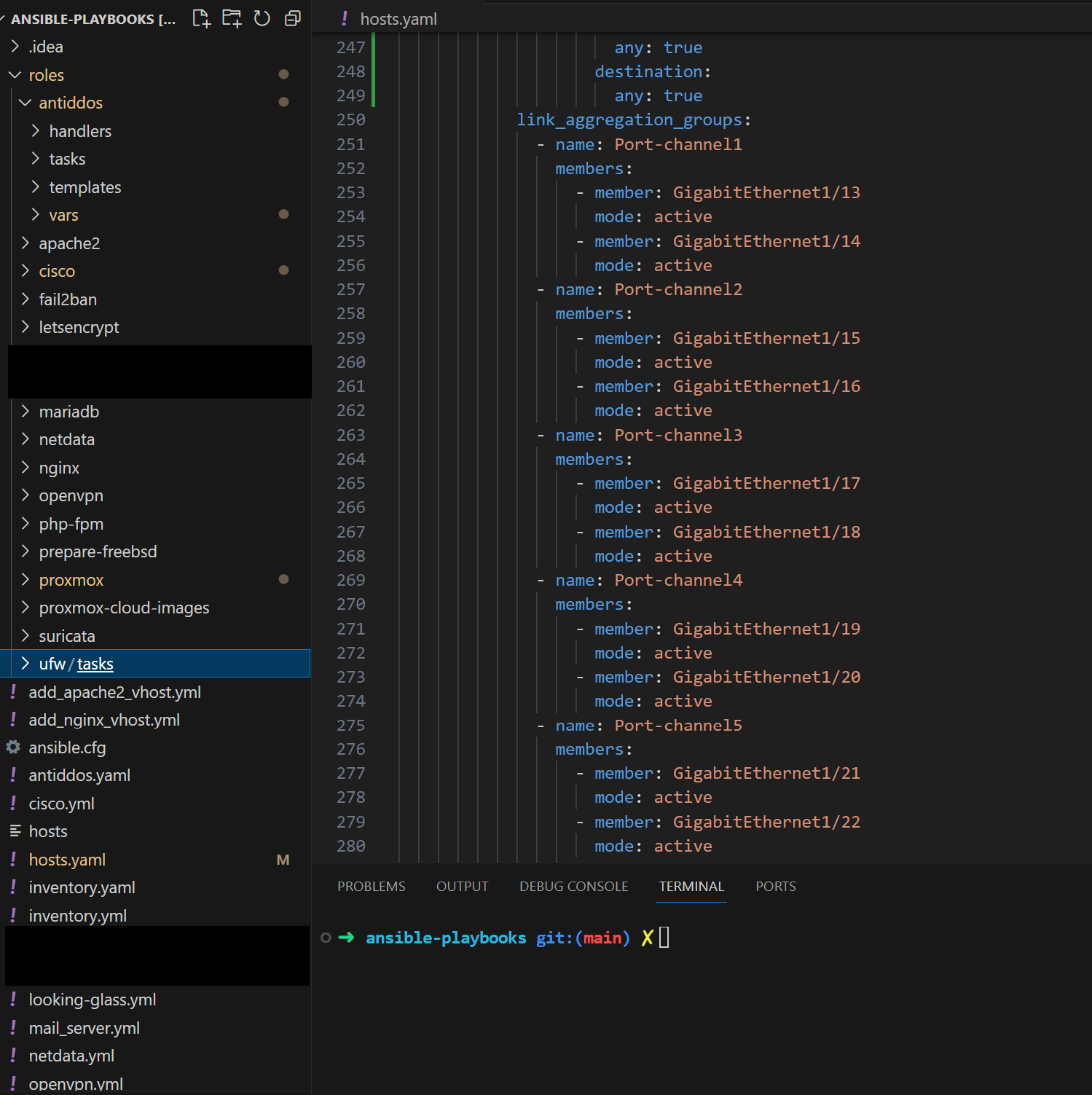New on LowEndTalk? Please Register and read our Community Rules.
All new Registrations are manually reviewed and approved, so a short delay after registration may occur before your account becomes active.
All new Registrations are manually reviewed and approved, so a short delay after registration may occur before your account becomes active.
Is Ansible still popular these days?
I have been working with Kubernetes/Pulumi and other things for the infrastructure and haven't needed to use a tool specific for config management in a while. I used to use Ansible a few years ago, and now I am using it again to set up a Postgres cluster outside Kubernetes (as discussed in another thread).
So I was curious to ask, is Ansible still popular these days? I kinda haven't heard of it in a while. If it's not, what do people use instead of it? Thanks

















Comments
yeah, in the big corps it’s still popular, since not many choice available due to restrictions and policies.
For personal project I still using it, I don’t have a plan to use different technology in near future’s.
Do we even have a lot options for dedicated server/VM?
Thanks. I am kinda surprised that I haven't heard of it in years before finding this project for Postgres that I mentioned. Although I have moved on to different ways of handling infrastructure I still like it.
Personally, I really like Ansible.

The entire HAZI.ro infrastructure is based on roles created from scratch, even if this meant dozens of hours of work and learning many new things that may not have made sense (for example, we have only one cisco switch, but even so, the whole setup was moved from raw commands -> ansible role) for the sake of learning.
Nice! Can you recommend some resource to get up to speed again since I haven't used it in years and I don't remember much? I am thinking I could use it for something for the project I am working on, since I will need some stuff outside Kubernetes again.
The best resource is https://docs.ansible.com/ansible/latest/collections/index.html and sometimes ChatGPT/Stackoverflow for quite complex tasks like this one
Oh yeah, of course ChatGPT I didn't think about it. Thanks
I didn't think about it. Thanks
I believe it is still one of the standards, yes. Especially in larger orgs.
There are alternatives like Chef, Puppet, Saltstack, Rudder, CFEngine.
Also worth looking into Terraform and OpenTofu.
I wrote this almost 2 years ago, most of it should still be good.
Terraform is for Infra and Ansible for apps.
They work together but they are not meant to be a replacement.
Correct
Ansible is still very popular. Even if you use Kubernetes, you'd still need something to configure the servers themselves.
We use Chef at work, but I'm not really a fan of Ruby.
This is really nice, probably better than most other hosts on this site. Makes it way easier to spin up a new server / switch / router if everything is automated.
Ansible is prem, we use it to deploy everything for BS, I also use it to deploy silly things I can't be bothered to do by myself
I cannot imagine server management without Ansible, we are using https://debops.org
Yeah - you can run it without needing to get central IT involved, licensing, some agent install, etc. If you want to whip up something quick without red tape, Ansible is prem, since it just runs over ssh and you don't need any special permissions to use it.
Maybe for you but this infra guy uses Ansible for infra on-prem.
Why would you use Ansible to bother writing idempotent code about how to create the infrastructure when Terraform in its simplicity only wants to know what resources you need, not how they are created.
There are tons of modules, for sure there is something for on-prem too.
Ansible is ok, but I'd prefer tech that shoves a docker image and Linux kernel together and bundles it all into a disk image you can ship directly.
Haven't found any good tools that do that though
I think Ansible + this collection may be the answer for your question:)
No what I mean is I want a tool that'll let me generate disk images directly from a Dockerfile that I can ship directly onto servers.
i.e. pick a docker image (essentially a rootfs) pick a kernel version and then it sets up all the partitions for you.
The idea is that you'd be generating a rootfs from a Dockerfile and then shipping that with a kernel to make a disk image. Shipping updates would be hard but I could imagine a bootloader that checked for rootfs and kernel updates from a central server before updating/loading a kernel.
You cannot use the same kernel from the Dockerfile directly in the VM images, but I got the idea.
It seems that you want to use the concept of templates offered by proxmox/SolusVM and other similar solutions, but without being limited to just the pre-installed software.
The perfect combination is between VM templates + cloud-init, where you can also specify later what changes you want to be made to the image (installation of additional software, uninstallation of existing software and any other linux command that crosses your mind).
Same, I use it for cloud too though.
In my case, if I need to deploy a specific stack I just point it to the cloud provider / bare metal and bam my app is up.
I get the advantage of Terraform/OpenTofu, but sometimes it's just not required.
Somehow I don't see the advantage?
I get that docker creates an extra layer, but the sheer simplicity of spinning up a node and starting a container is great. Makes upgrades much easier and re-using nodes too - although, trashing one and starting over is easier usually.